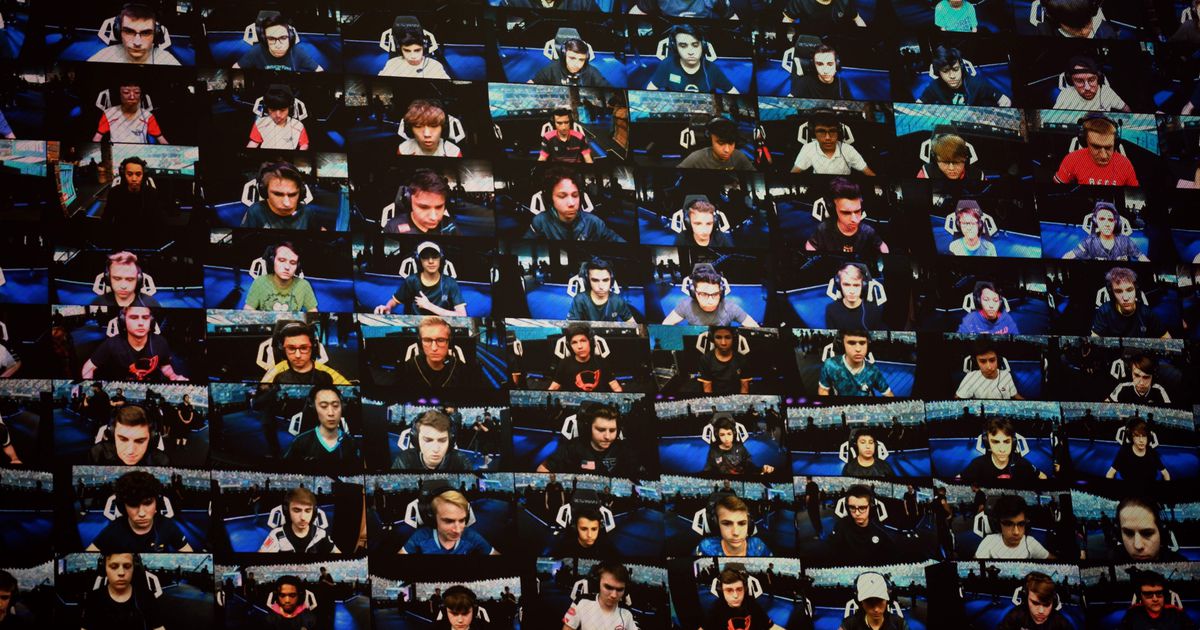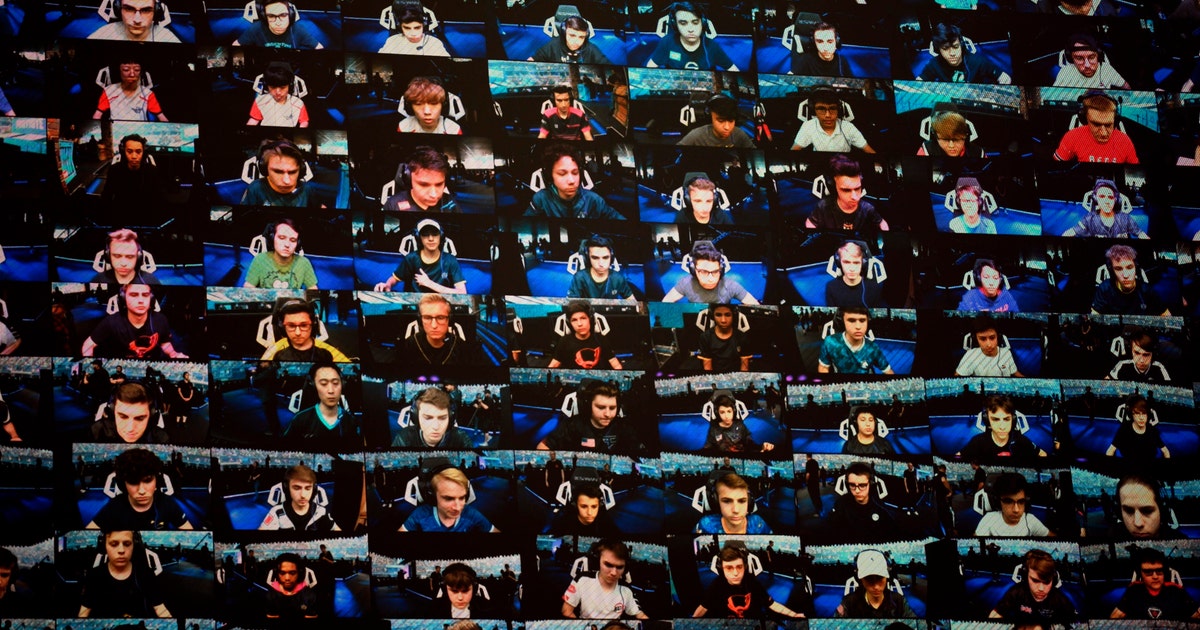With its $3 million grand prize, is Fortnite taking esports mainstream?


At the ripe old age of 16, life has certainly changed for Kyle “Bugha” Giersdorf. And the sports landscape has been formally transformed as well.
Giersdorf, from Pottsgrove, Pa., took home the singles title and $3 million grand prize at the Fortnite World Cup last weekend in New York. The event drew a packed house to one of America’s elite sports stages in Arthur Ashe Stadium. More significantly, upwards of 2 million watched it concurrently on various livestream platforms, putting the tournament into the upper echelon of live-event consumption.
Bugha officially is no longer an ordinary teenager, not with millions of dollars to his name — although he commendably promised to save virtually all the money. Last week, he might have been watching The Tonight Show. By Monday night, he was sitting on the couch as Jimmy Fallon’s guest, a rite of passage for many sports champions.
16-yr-old #FortniteWorldCup Solo Champion @bugha walks us through his gaming routine. More with @bugha on #FallonTonight! pic.twitter.com/tVu7oQgRRJ
— Fallon Tonight (@FallonTonight) July 30, 2019
Countless articles were devoted to his victory, in everything from the most mainstream publications to the niche gaming sites. There is something about life-altering money that makes people sit up and pay attention — it was noted that his first prize was more than Tiger Woods won at this year’s Masters. And his haul was just part of a $30 million prize pool taken home by 100 players from 30 countries over the weekend, most of them aged 13 to 24.
With those mind-boggling numbers, at least some parents around the country surely started thinking twice about telling their youngsters to put down their console and do their chores — because maybe, just maybe, we got a glimpse of what the future looks like this past weekend.
“It is not slowing down any time soon,” Chris Puckett, an early esports pioneer who turned his ability into a long and successful career as an on-screen host and play-by-play commentator, told me in a telephone conversation. Puckett is 33 and “feels like a grandpa” at major events — pro gaming is dominated by youngsters with lightning reflexes and time to burn.
“It is incredible,” Puckett added. “I started in 2001, and my career earnings were in the 500s of dollars and I was making more money making pizzas. Now, you are seeing the kind of money that changes everything not just for the player, but for their families.”
Game one of the Solo #FortniteWorldCup is dominated by @bugha who picks up 9 eliminations along the way!
Some incredible plays from him through the late circles after he saved his movement to clutch up a memorable Victory Royale.
Watch here: https://t.co/MuOsVmQfx4 pic.twitter.com/L5LEMZVfa2
— Fortnite Competitive (@FNCompetitive) July 28, 2019
According to egaming analytics firm NewZoo, the global esports audience will reach 453.8 million people and generate $1.1 billion in revenue this year. One game, Apex Legends, launched six months ago, but already has 50 million players worldwide. Epic Games just announced a new competition, the Fortnite Champions Series, where millions more in prize money will be offered. Meanwhile, mixed martial arts promotion ONE Championship revealed a new Asian esports tour, with stops in major cities.
The Overwatch League, run by games giant Blizzard Entertainment, has 20 teams in major cities on three continents. Players must be over 18, and they receive health benefits and a minimum salary of $50,000. “Look at the best sports models in the world,” Daniel Cherry, CMO of Activision Blizzard esports, said in a recent talk at the Cannes Lions Festival. “The most profitable, valuable sports entertainment properties happen to be located in cities that represent a certain geography. So we are taking that model and applying it to esports.”
Compared to these and other competitive games in the esports space, though, Fortnite is more individualized – which helps create recognizable stars. Participants compete in both solo and pairs events, and the game can be played on all platforms. Fortnite was rolled out in the summer of 2017 and exploded in popularity, having been played by an estimated 250 million people. Of those, 40 million tried to qualify for the World Cup. Read that again: 40 million people vied for a shot at millions of dollars in prize money in just one game, for just one competition.
Congrats to all of our winners this weekend at the #FortniteWorldCup Finals
Solo Champion: @bugha
Duos Champions: @nyhrox @aquaa
ProAM: @Airwaks @RLGRIME
Creative: #FishFam @cizzorz @hiimtylerh @suezhoo @zandOfficial pic.twitter.com/ilBs7RTeTv— Fortnite (@FortniteGame) July 28, 2019
“Fortnite has done something no other esports game did, which is push esports to the mainstream,” John Yao, CEO of gaming franchise Team Secret, told MSNBC. “Everybody has heard of it, and it has really changed the dynamic and been a good thing for esports.”
It is hard to know if the boom will slow down, or if it is just scratching the surface, but the smart money is on esports’ staying power. Unlike certain traditional sports, esports has a long way to go before their fan base ages out. Each passing year brings a new influx of children not only playing but talking about and engaging with their favorite games and players.
The more money esports generates, the bigger the budgets are for games — leading to a correlating increase in quality of game play and visuals. And the more people hear about Bugha’s windfall, the more dreamers there will be chasing a piece of that action.
That’s why this weekend’s Fortnite World Cup was so crucial in the growth of esports. The games themselves are exciting to watch for anyone with a basic knowledge of playing them, with enough randomness to provide a compelling narrative but also appropriate reward for the most skilled and consistent players. What would help solidify esports’ newfound reputation as a mainstream competition is the creation of stars along the lines of the world-famous Ninja — and no game lends itself to the rise of such stars quite like Fortnite.
Congratulations @bugha! pic.twitter.com/nchRlL3wUC
— Fortnite Competitive (@FNCompetitive) July 28, 2019
In terms of the future, the sky is the limit.
“Remember that this is an industry that is based to a large part on innovation,” Puckett added. “Maybe 10 years from now we will be wearing a T-shirt that will vibrate when you get hit in the game.
“I do think these players will pass a lot of actors and musicians and artists in pop culture popularity. These are the personalities that brands will get behind globally. I think it will keep growing. It is hard to see how it can stop at this point.”







